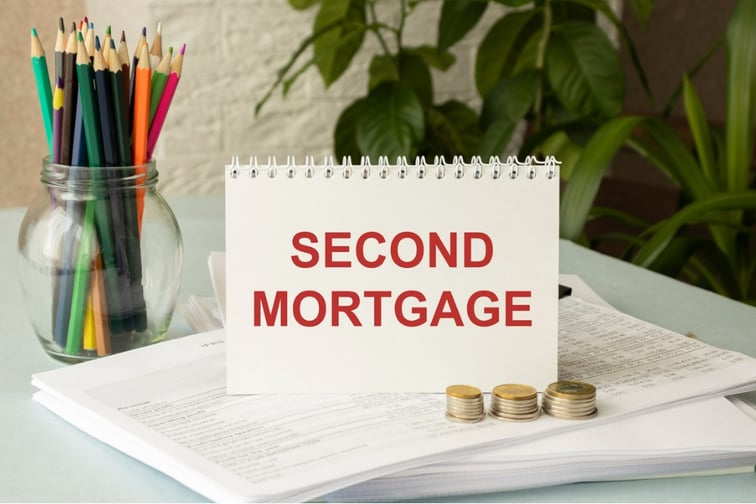

Getting a second mortgage is often seen as a joke, a throwaway comment to protest the price of something. But beyond the laughter, it is a legitimate option for many property investors, especially those looking to maximise their lending potential and exploit any equity that they might have available in their homes.
The hardest part of a second mortgage is generally finding a lender who will provide one, as they naturally fall into second place behind the original mortgage. And, in truth, for the majority of borrowers, simply refinancing is a better option that a second home loan too, as the hurdles that will stand in the way of arranging such a deal will likely to be too high and too complicated for most.
Even if a customer decides that it is the best option for them, the chances are that a lender willing to provide secondary finance will likely do so with very strict conditions and only under limited circumstances.
Brokers are ideal companions to help consumers to arrange such a deal, however, and are experts in leveraging equity, finding the best interest rates and arranging lines of credit, so if you are considering a second mortgage, your local broker should be the first point of call.
The concept of a second mortgage is quite simple. It involves getting a home loan on your property in exactly the same way that you would with a first mortgage. So far, so simple.
The problem comes with the first mortgage: if you sell your house, or fall into arrears, then the first home loan gets priority and thus is the first to get paid up in full, meaning that anyone taking on your second mortgage will have to accept that they are not going to get their cash back as readily as they otherwise might.
Bear in mind too that, if you opt to go down this route, you’ll need to get permission from your existing lender. Of course, the easiest way around that is to get your second mortgage from the same lender as your first.
Second mortgages empower a borrower to borrow more money against the same home. Most lenders won’t offer them readily, so you will definitely need to speak to a mortgage broker to get one, or find a private investor who thinks that you are worth the punt.
They’re also much more expensive than an average mortgage, because the risk of the lender losing their cash is much higher due to them not being the first creditor to get repaid should you sell the home or, worse, default on it.
To get started, go to your broker and ask them if it is actually worth it in the first place. The chances are that they will advise you to refinance first, and only when you have fully considered that option will they proceed to a second mortgage.
From there, it is a case of getting permission from your original home loan lender and then finding a second lender who will take on your proposition. With that in mind, here is your guide to how to get a second mortgage.
If you’ve decided that you need a second mortgage, there are plenty of benefits to be had. First up, they are excellent for increasing your equity, which can be great for those looking to get cash to buy an investment property, renovate their existing home or make another large purchase.
Second mortgages are an interesting alternative to refinancing, too, and can work out as a cheaper – if not easier – method of avoiding the many fees that can come with a refinance, such as those incurred when breaking a fixed rate home loan or paying LMI twice.
For those with kids struggling to get onto the housing market, a second mortgage can also be used as a surety that can allow a parent to act as guarantor for a different loan, as a way of showing the bank that your family member is able to be lent to.
Inherent in the second mortgage is risk, and any guide to the process has to mention that first up. There is the obvious problem that comes with taking on more debt. A mortgage alone is plenty enough debt for most people, so two home loans is more than enough.
While one of the key advantages of a second mortgage is avoiding the fees that come with refinancing, there are also many fees built into getting one. Banks know that most people don’t want or need a second mortgage, and they aren’t a huge source of business, so they largely need convincing that they should give you one. Naturally, money talks and they’ll charge plenty of fees for the pleasure of lending you more money.
You won’t get many options for loans, too, which limits the range of lenders that a broker will be able to suggest. Then there’s the complexities of having two mortgages to manage at once – but that is built into the whole process.
The higher interest rate on a second mortgage is also likely to be a problem for most people, and if the purpose of your refinance is to take advantage of the equity in your home, then a large personal loan – some lenders offer as high as $80,000 now – or a large limit credit card might create the same cash flow benefit without the inherent risk of a second mortgage that will take 25 years to pay off.
Perhaps the largest disadvantage of a second mortgage is that they are so hard to get in the first place. Banks, largely, don’t like giving them out and you’ll have to convince them that you are worth the risk.
Home equity is always good, but if you want to draw on it, you will doubtless have to jump through many hoops. Brokers are always there to help and can be of great assistance in the process.
